From college students to retirees, everyday people are now playing the online trading markets like pros. But is this financial trend too good to be true?
Buckle up as we review the eye-opening statistics behind this year's trading frenzy. You'll discover:
- The shocking number of new traders entering the game daily
- Which social media platform is secretly driving market trends
- The real winners and losers in this high-stakes digital arena
Whether you're a curious bystander or a seasoned investor, these numbers will change how you see the financial world.
Ready to uncover the truth about online trading in 2026? Let's dive in.
Data Sources and Methodology
This article compiles verified studies to provide a comprehensive overview of online trading statistics. Our research process includes:
Data Collection:
- Primary sources: Industry surveys, government databases
- Secondary sources: Academic publications, reputable industry reports
- Time frame: Data collected spans from 2021 to 2032
Key Data Providers:
Analysis Approach:
- Cross-referencing multiple sources to ensure accuracy
- Prioritizing the most recent data available
- Applying relevant analysis techniques, e.g., trend analysis, comparative analysis
Limitations:
- Market dynamics in online trading can shift rapidly; consider the publication date of this article.
We strive for accuracy and transparency in our reporting.
However, some data points may have changed since publication.
Key Takeaway
- Online trading is estimated to reach $10.15 billion by the end of 2024.
- 15.5% of stock traders are women, and 84.5% are men.
- 71% of Gen Z are actively participating in investing as of 2023.
- approximately 9,000 online brokers operate in the United States
- 85% of investors are interested in sustainable investing
Overview of Online Trading
Online trading emerged in the late 1990s, driven by technological advancements and the Internet.
It refers to buying and selling financial instruments via online platforms, allowing investors to manage their portfolios remotely.
Since its inception, online trading has expanded markedly, with pivotal changes reshaping the industry.
The introduction of commission-free transactions and the widespread adoption of mobile trading apps stand out as crucial turning points, propelling the field forward and transforming how investors engage with financial markets.
The global online trading platform market size was valued at $9.55 billion in 2023 and is projected to grow from $10.15 billion in 2024 to $16.71 billion by 2032, exhibiting a CAGR of 6.4% during the forecast period 2024-2032. Fortune Business Insight
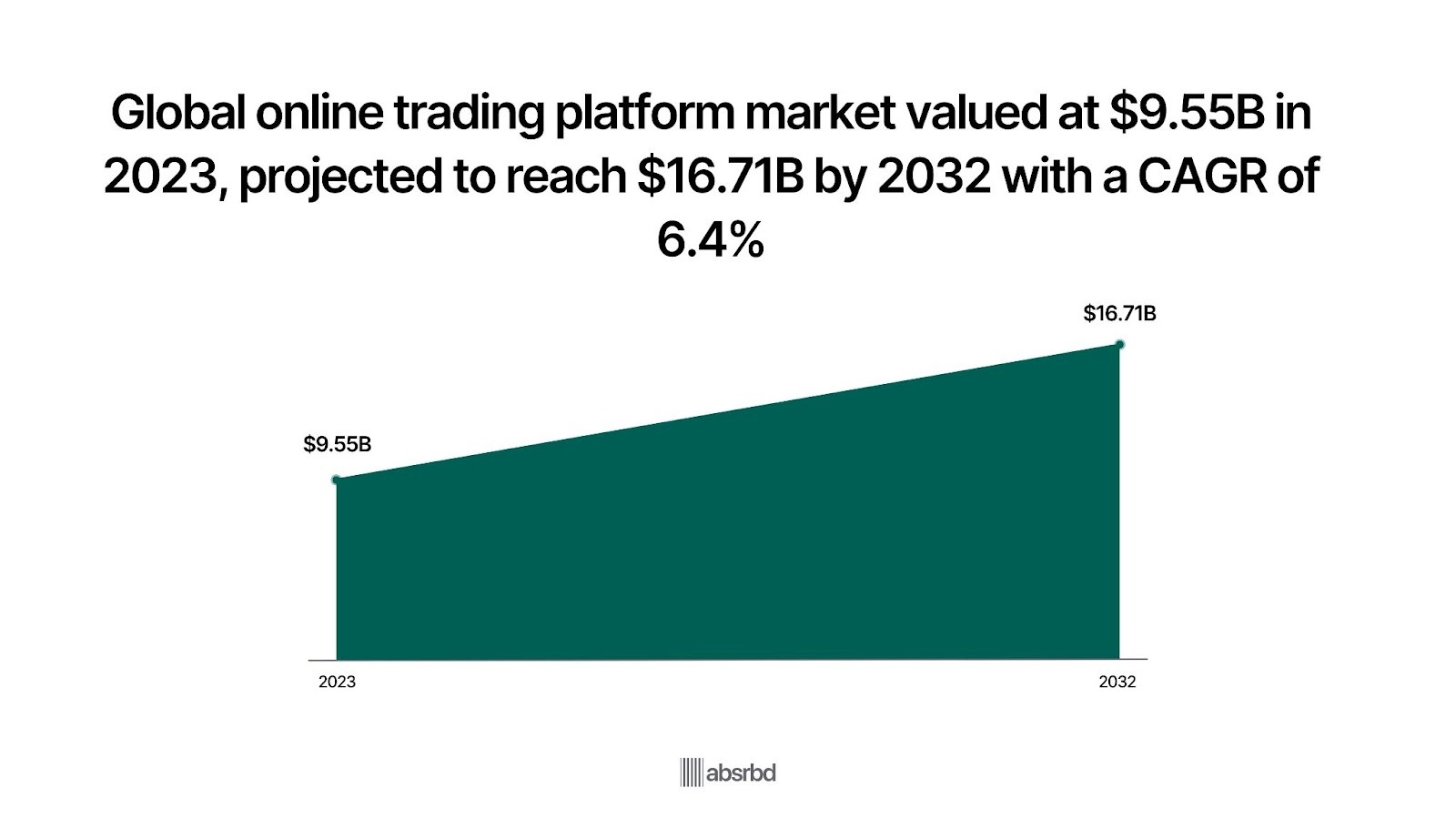
Major players include platforms like Robinhood, ETRADE, and TD Ameritrade, and factors such as increased smartphone usage and the demand for commission-free trading continue to shape the industry's trajectory.
With 130 million mobile traders globally and a growing number of retail investors participating Business of App, online trading is crucial in democratizing access to financial markets.
This growth is making it a key area of focus for investors, financial institutions, and regulators alike.
Key Statistics
The online trading ading sector has experienced growth in recent years. The following statistics highlight the current state and trajectory of Online Trading:
- The global online trading platform market size was valued at $9.55 billion in 2023. Fortune Business Insight
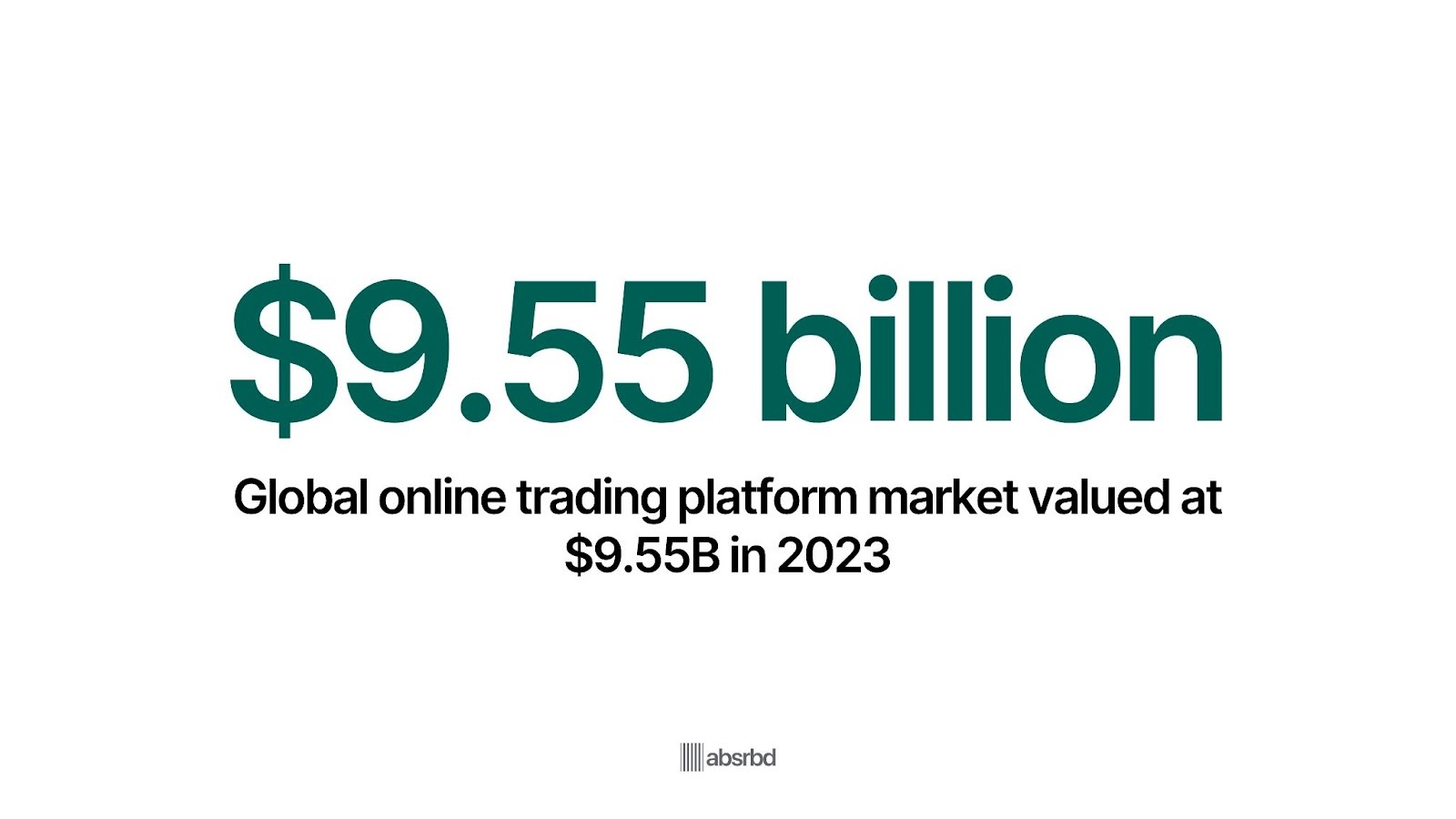
- It is estimated to reach $10.15 billion by the end of 2024. Fortune Business Insight
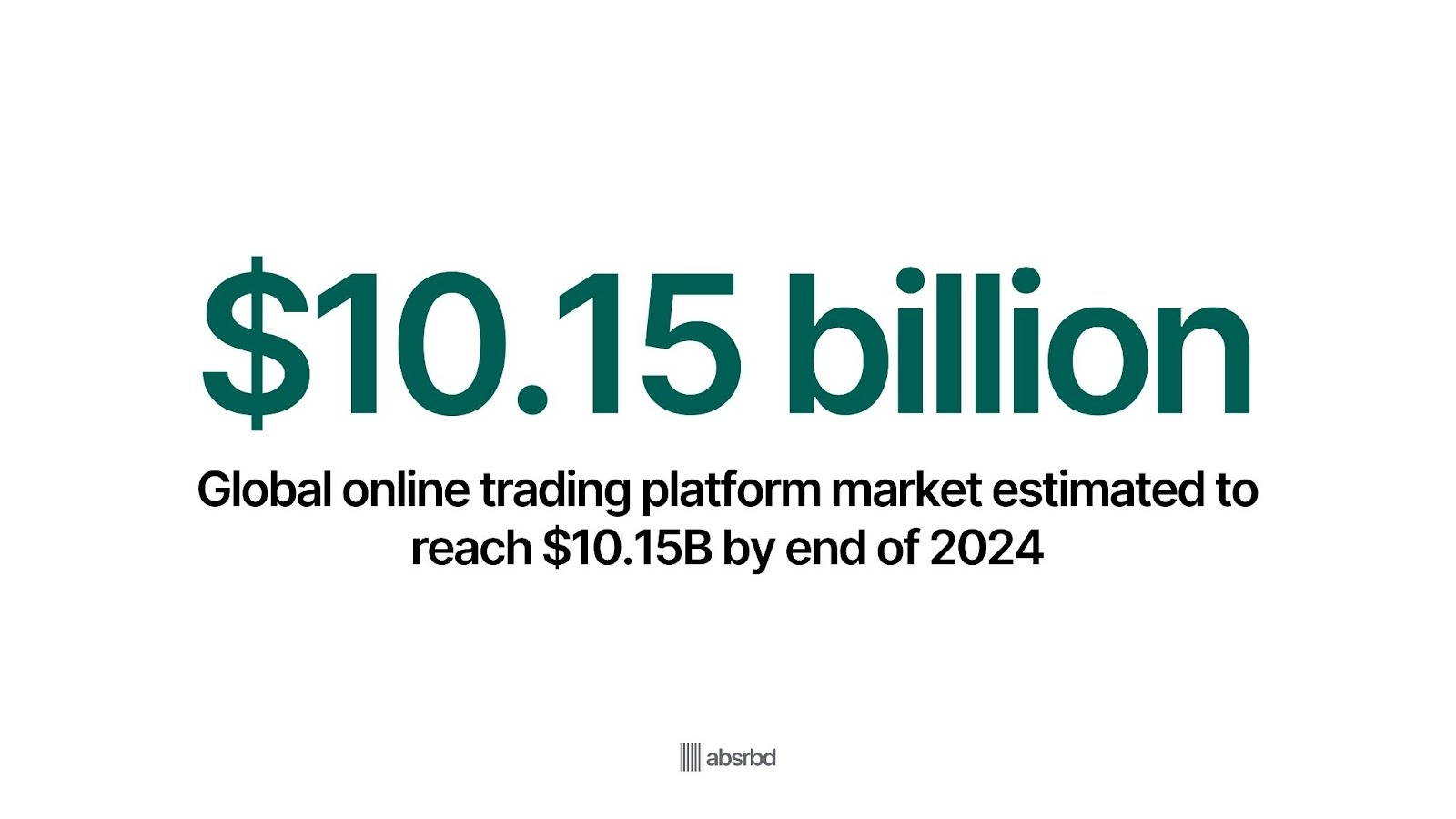
- It’s forecast to grow to USD $10.82 billion in 2025. Fortune Business Insights
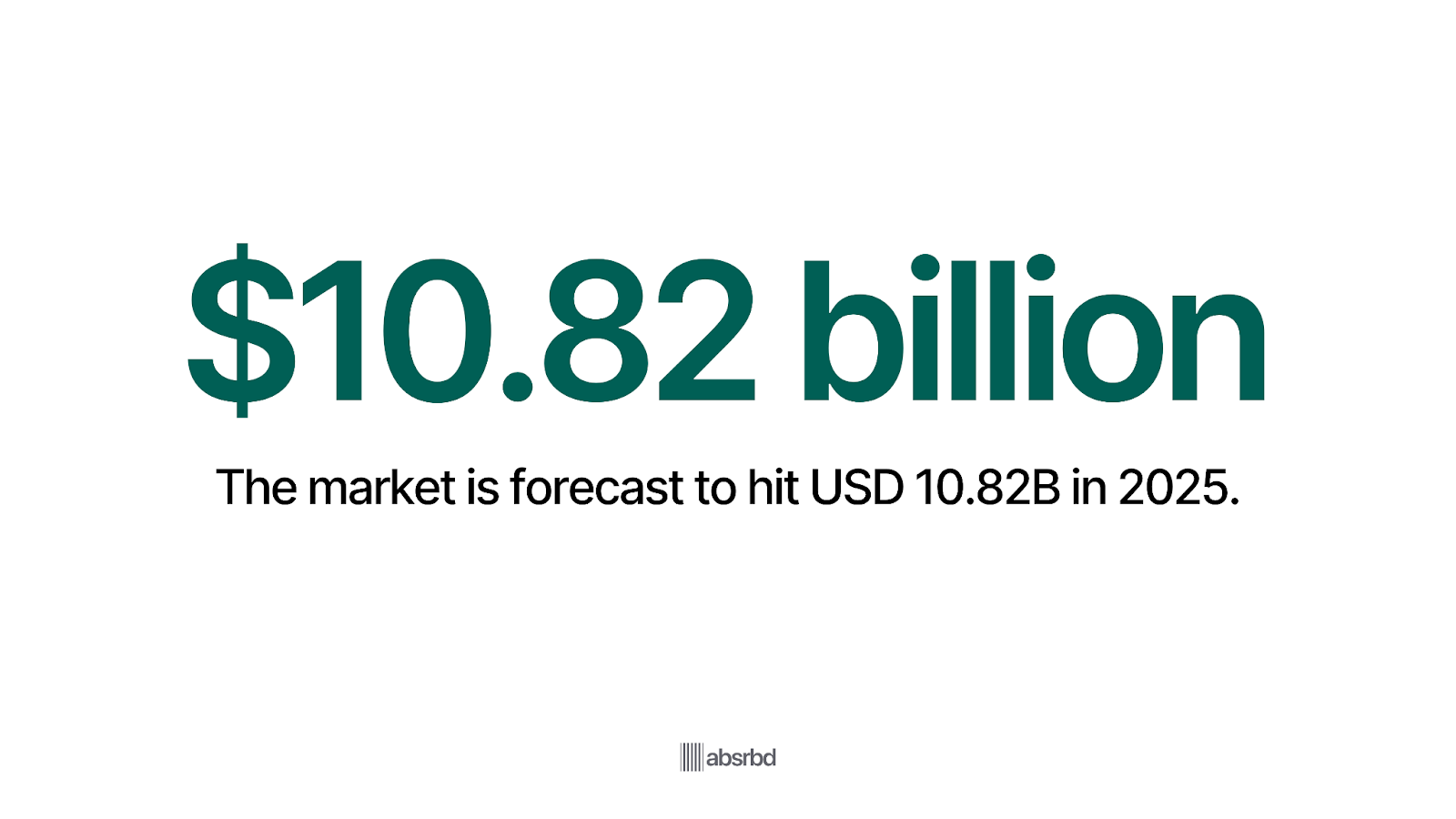
- By 2026, that market is estimated to reach USD $13.30 billion. Statista

- It is projected to reach $16.71 billion by 2032, growing at a CAGR of 6.4%. Fortune Business Insight
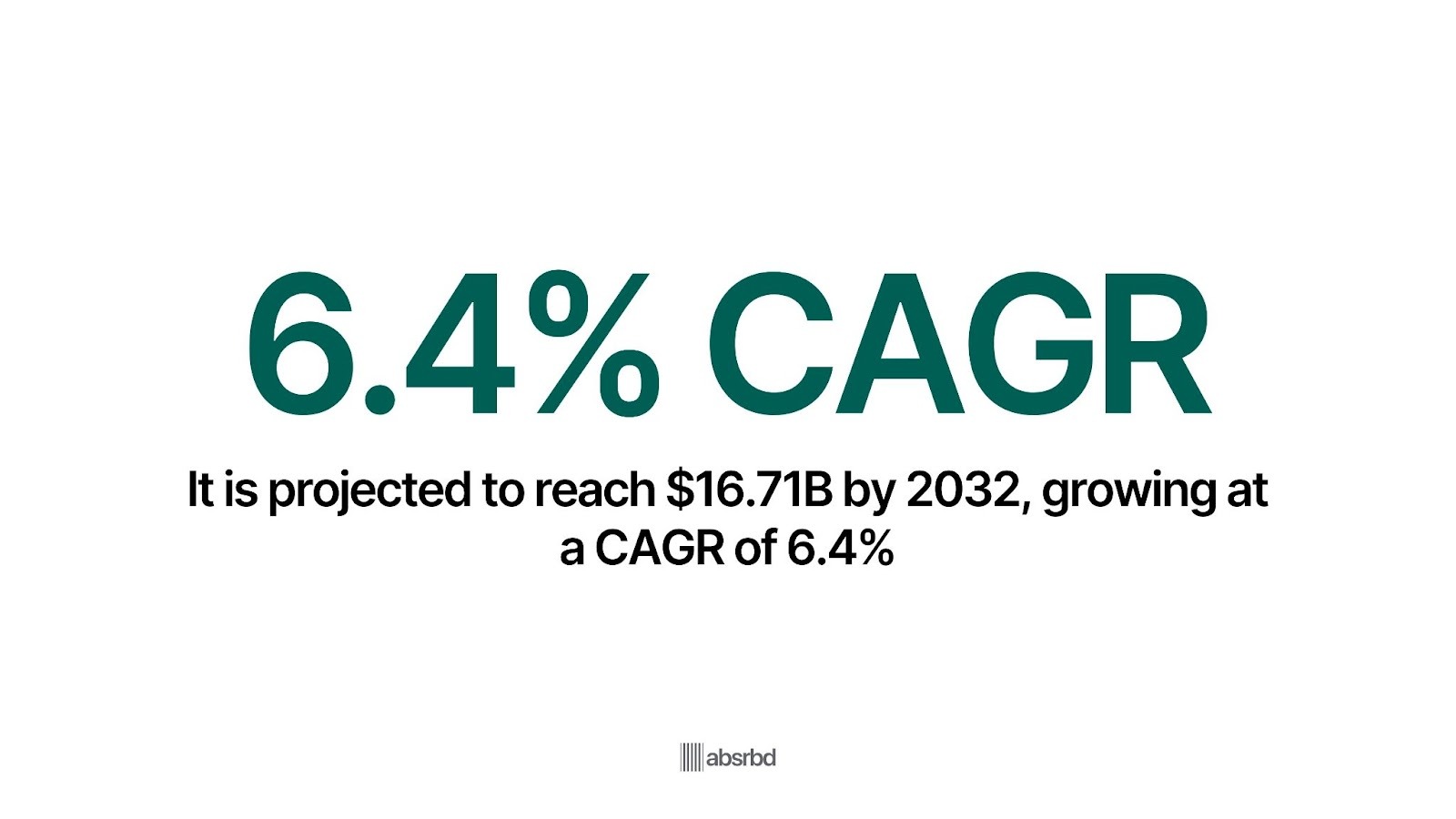
- Cloud-based deployment holds 64.12% of revenue share in the online trading platform space. Mordor Intelligence
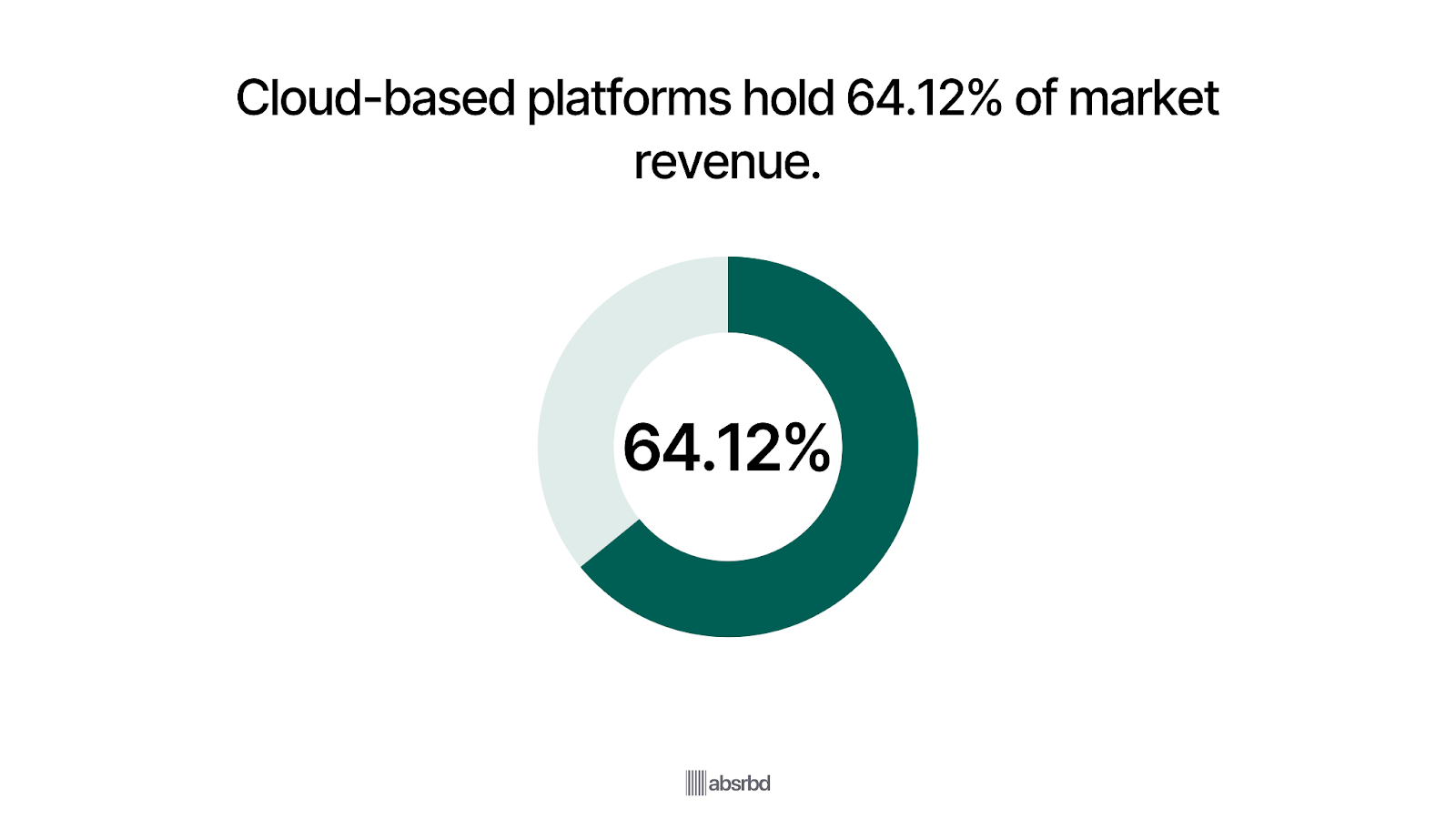
- The brokerage trading platforms software market software toolset was worth USD 5.80 billion in 2024 and is projected to hit USD 6.29 billion in 2025, reaching USD 12.30 billion by 2034.
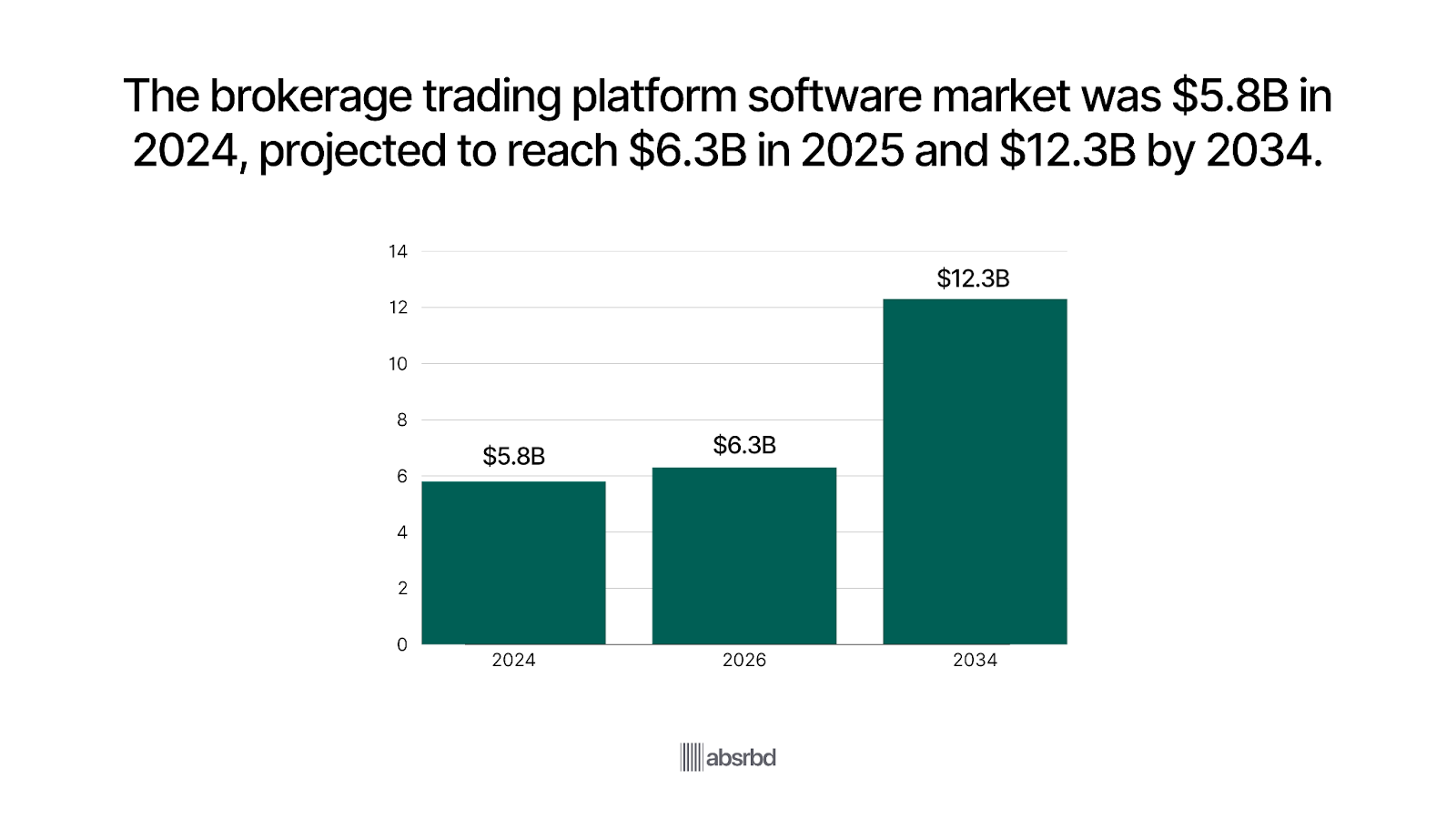
- The online trading platform market shows a projected growth of USD $2.66 billion between 2021 and 2026. PR Newswire
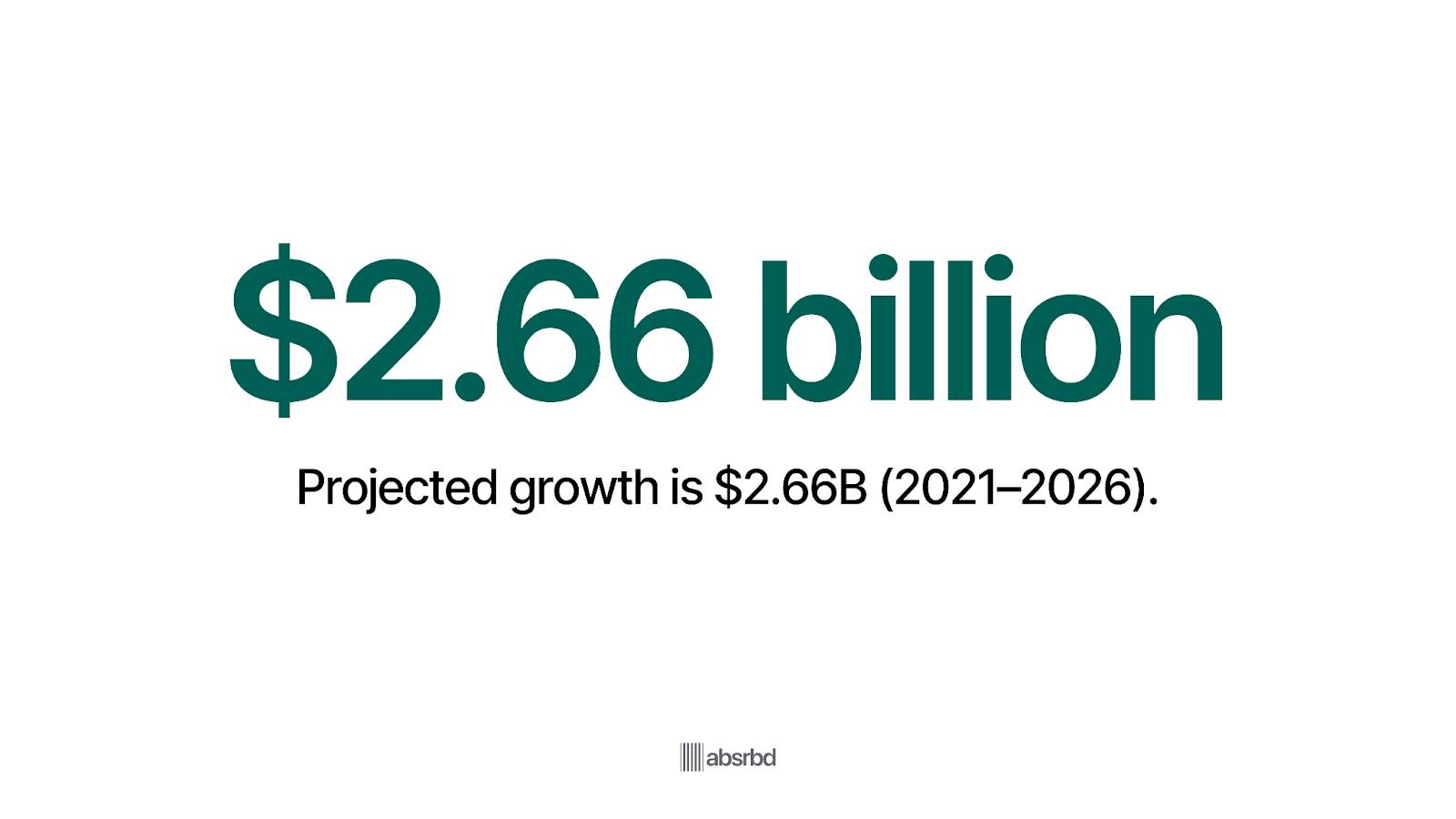
- Stock trading apps generated $22.8 billion in revenue in 2021. Business of app

- Robinhood was valued at over $30 billion in 2021 but has seen its valuation decline to less than $10 billion in 2022. Business of app
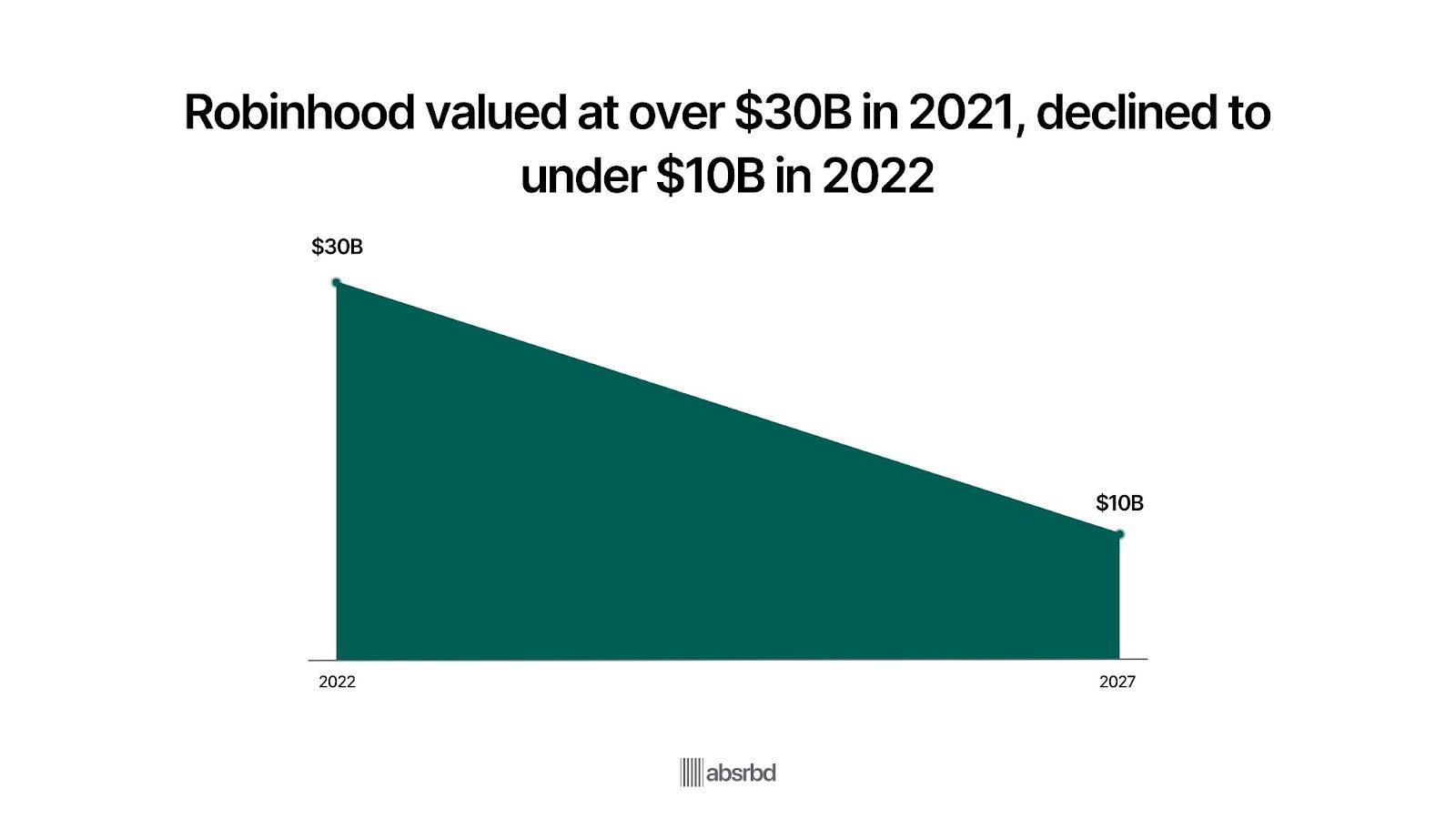
- Over 130 million people used stock trading apps in 2021, a 49% increase from 2020. Business of app
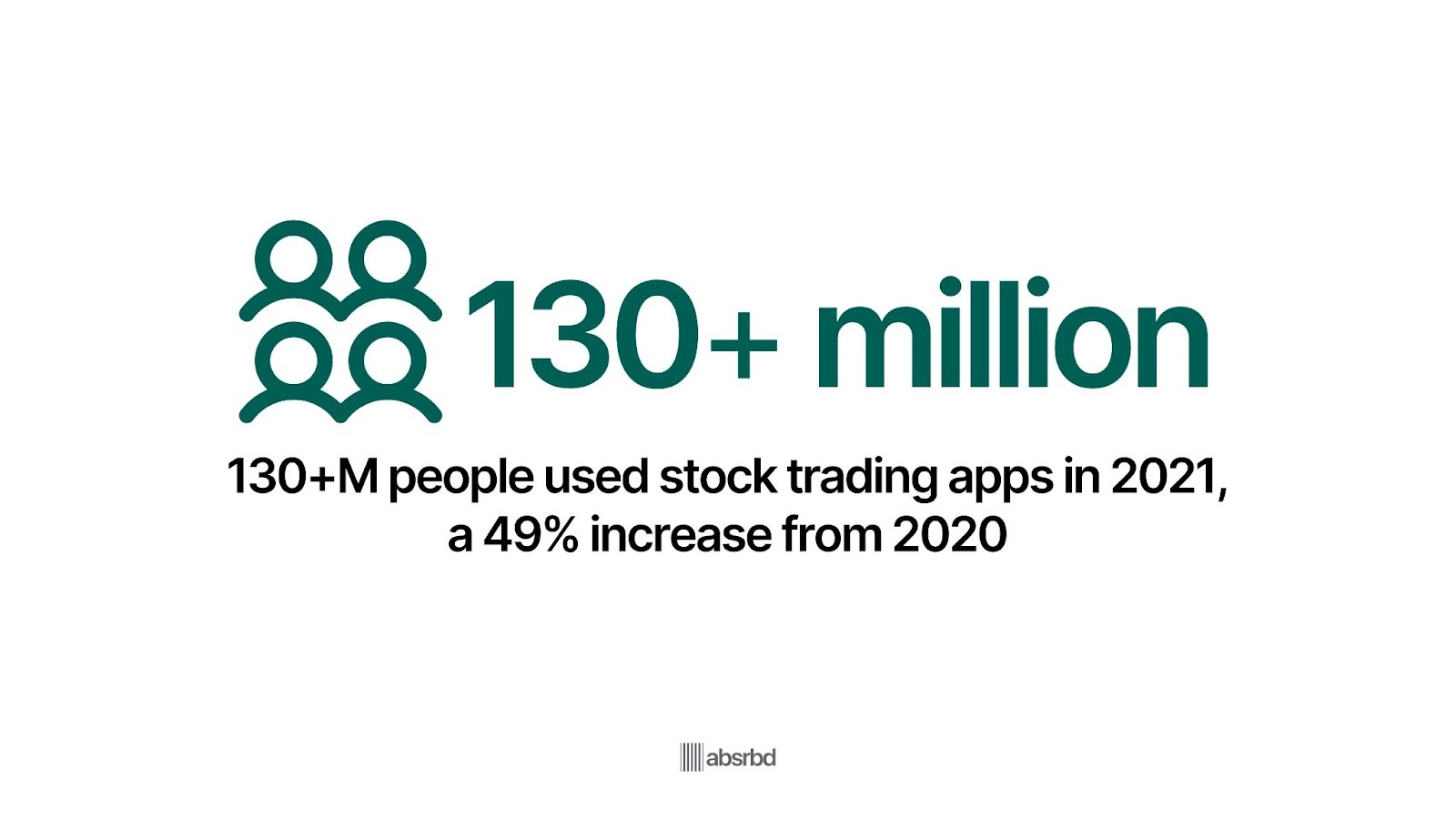
- Insured U.S. commercial banks and savings associations reported $13.7 billion in trading revenue in the second quarter of 2023, reflecting a decrease of 22.4% from the previous quarter OCC gov
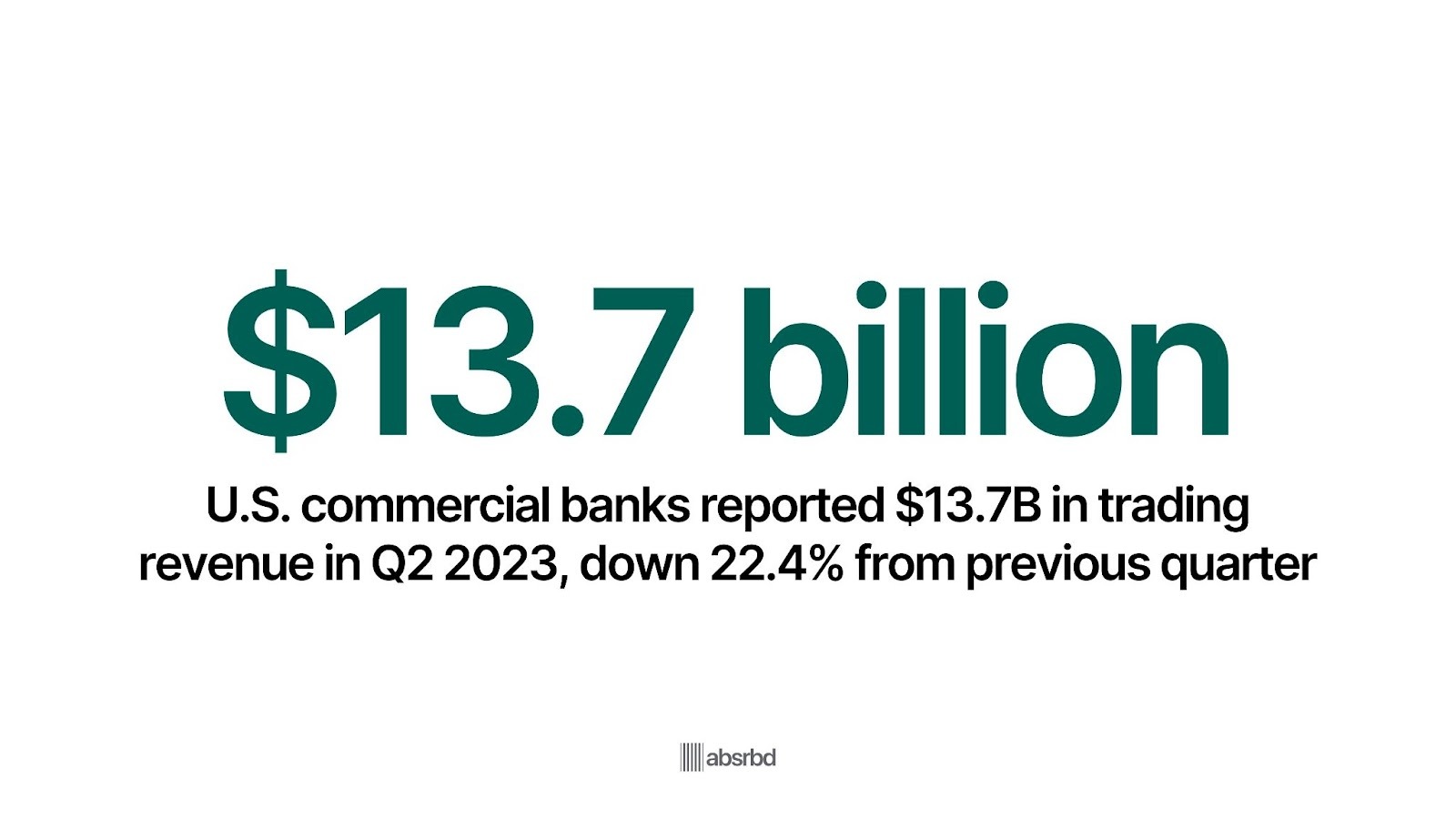
- 15.5% of stock traders are women, and 84.5% are men. Zippia

Major Trends in Online Trading
The online trading industry is changing rapidly in 2026, driven by mobile-first adoption, AI-powered analytics, and a surge in retail participation that’s reshaping how investors trade globally.
Mobile Trading Adoption Rises With Over 130 Million Users in 2021 Business of App

The adoption of mobile trading applications has skyrocketed. In 2021, 130 million people used mobile apps to trade stocks, an increase from 51.9 million users in 2019.
This reflects a broader shift towards mobile technology, allowing investors to manage their portfolios conveniently from anywhere.
Furthermore, the surge is remarkable as it democratizes access to financial markets, attracting a new generation of traders who prioritize flexibility and immediacy.
Commission-Free Trading App Robinhood Net Revenue Reached $471 Million as of 2023 Statista
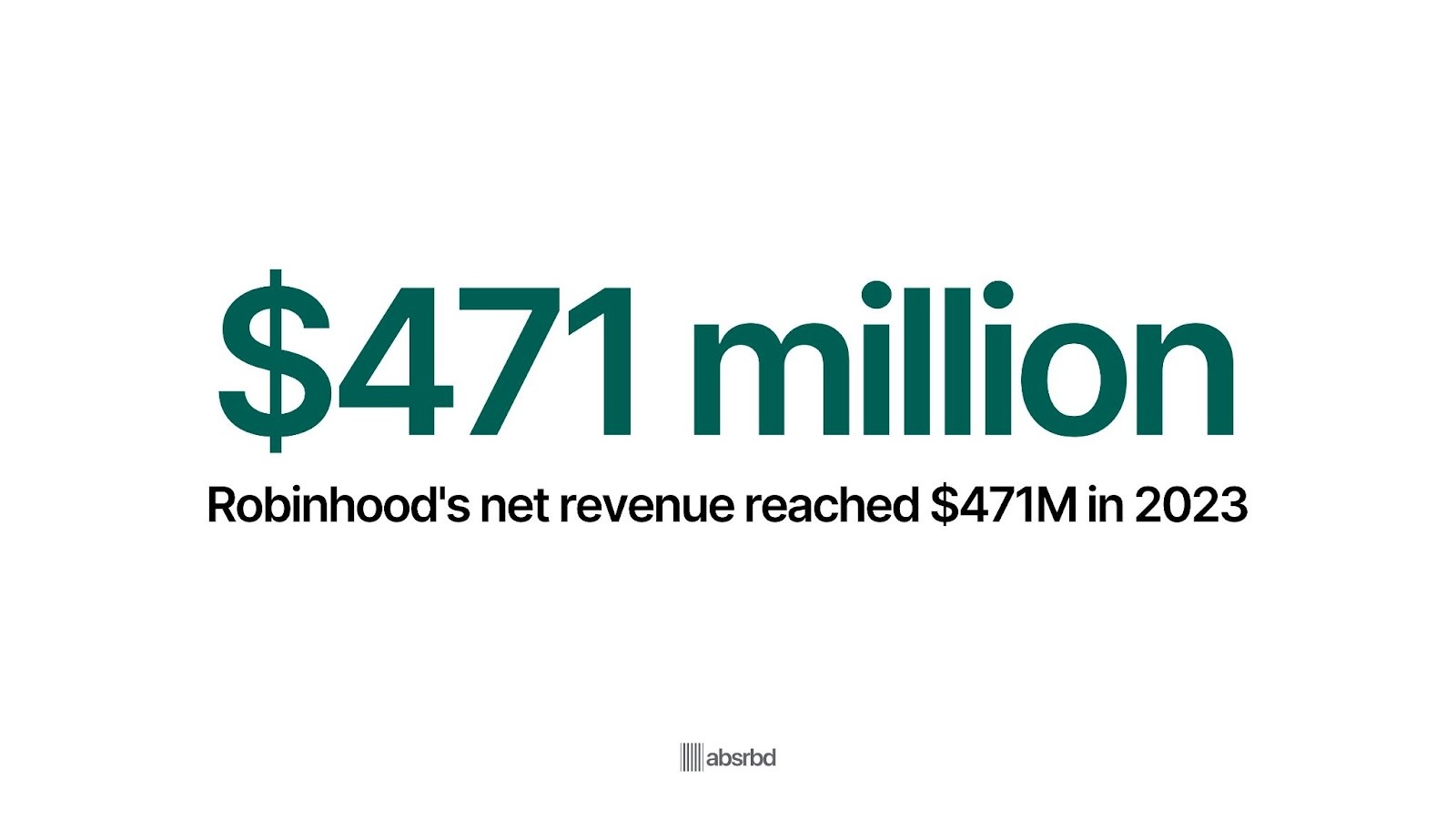
The elimination of trading commissions has changed online investing.
This shift has opened trading to a broader range of people, especially younger investors who might have been put off by traditional fees.
The impact of this change is noteworthy, as it could lead to more frequent trading and greater overall involvement in the markets.
A prime example is Robinhood, which saw its active user base grow to 16.3 million in 2021.
This surge in users is mainly due to their no-commission approach, which motivates retail investors to trade more often and stay engaged with the platform.
Younger Investors Drive Market Growth with 71% of Gen Z Investing Market Watch
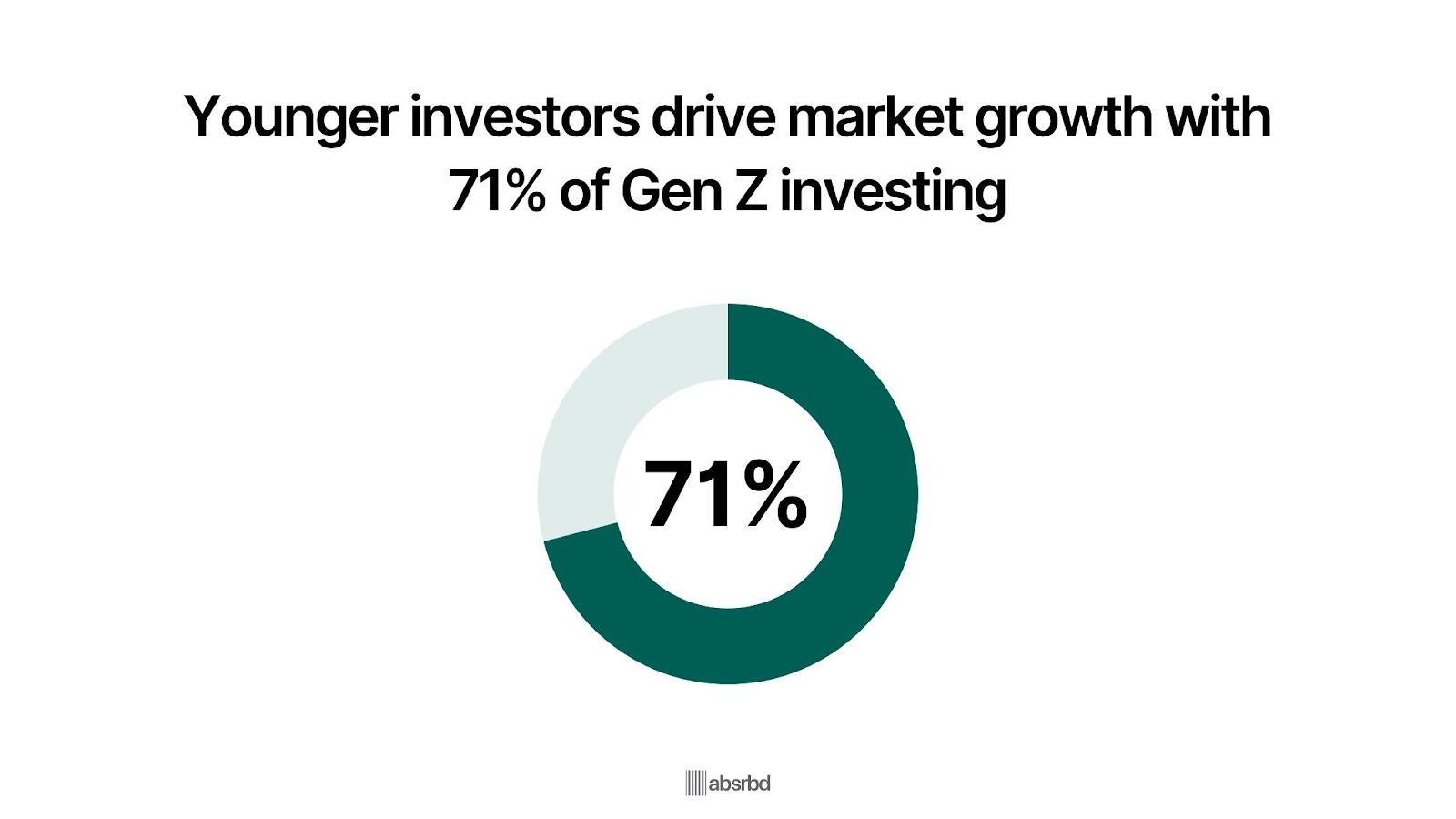
The shift of younger investors entering the stock market is gaining momentum, with 71% of Gen Z actively participating in investing as of 2023.
This demographic shift suggests a rising interest in financial literacy and investment among younger generations, which may alter the investment sector.
The increase in younger investors is also reflected in the rise of platforms like Robinhood, which appeal to this age group. Robinhood captures 42% of mobile brokerage app downloads among users aged 18-34. Comscores
Mobile Trading Apps Experience 34% Decline in Engagement Similarweb

Despite the initial surge in popularity, engagement in mobile trading apps like Robinhood declined 34% in Q1 2023.
This downturn highlights the volatility of user interest in trading platforms as the novelty of commission-free trading wears off.
It is essential because it has implications for user retention strategies and the need for platforms to innovate continuously.
For example, while Robinhood still outperformed crypto-focused competitors, it faces increasing pressure to enhance user experience to maintain its market position.
Social & Copy Trading on the Rise; Customization & Community Drive Engagement
Social and copy-trading features are increasingly offered, enabling users to follow or replicate trades of more experienced investors.
Customization dashboards, alerts, educational content combined with community aspects enhance user retention.
This trend reflects a shift: traders want both financial tools and social proof or peer interaction.
AI-Trading Platform Market to Hit USD 13.52 Billion in 2025; USD 69.95 Billion by 2034
The global AI trading platform segment is estimated at USD 13.52 billion in 2025, rising to USD 69.95 billion by 2034 CAGR 20.04%. Precedence Research

App-based interfaces held 55% share in 2024, and cloud deployment 51%.
This confirms AI is a significant lever for growth, in trading strategy, execution, and risk analytics.
Key Challenges Facing Online Trading
Despite record market growth, online trading platforms face mounting challenges around regulation, cybersecurity, profit margins, and maintaining user trust in an increasingly competitive digital Industry.
Market Saturation, With Approximately 9,000 Online Brokers in the United States Statista
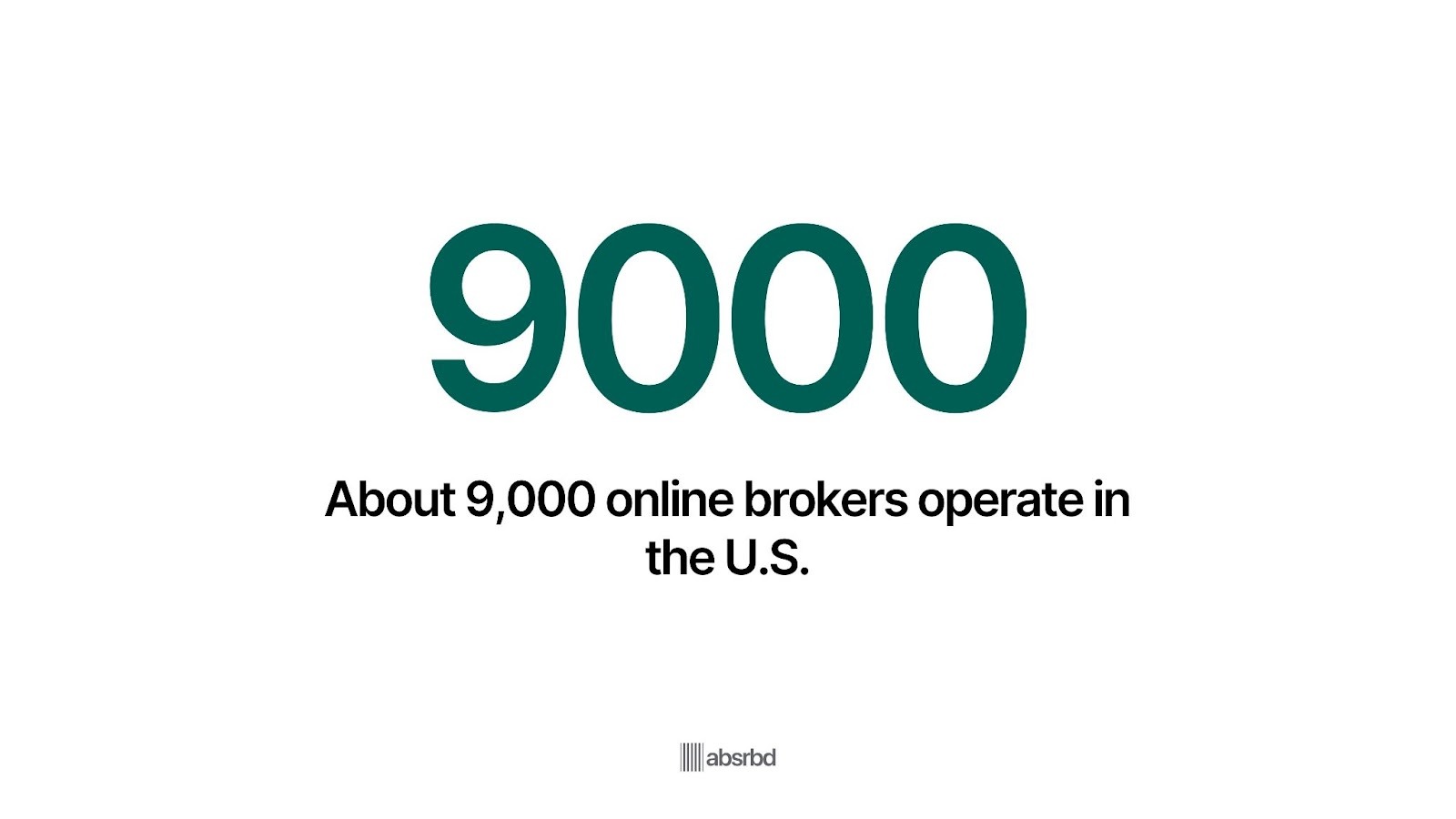
As of 2023, approximately 9,000 online brokers operate in the United States, leading to market saturation. Statista
This includes a mix of large, established firms and smaller, newer entrants in the online trading space.
Major players in this market include Fidelity, Charles Schwab, ETRADE, and Robinhood.
This intense competition forces platforms to continuously innovate and lower fees, which can squeeze profit margins.
According to a recent analysis, many brokers struggle to differentiate themselves in a crowded marketplace.
Focusing on unique offerings and superior user experience is essential to retain customers.
Us Firms Spend 1.3 to 3.3% of Its Total Wage Bill on Regulatory Compliance. NBER
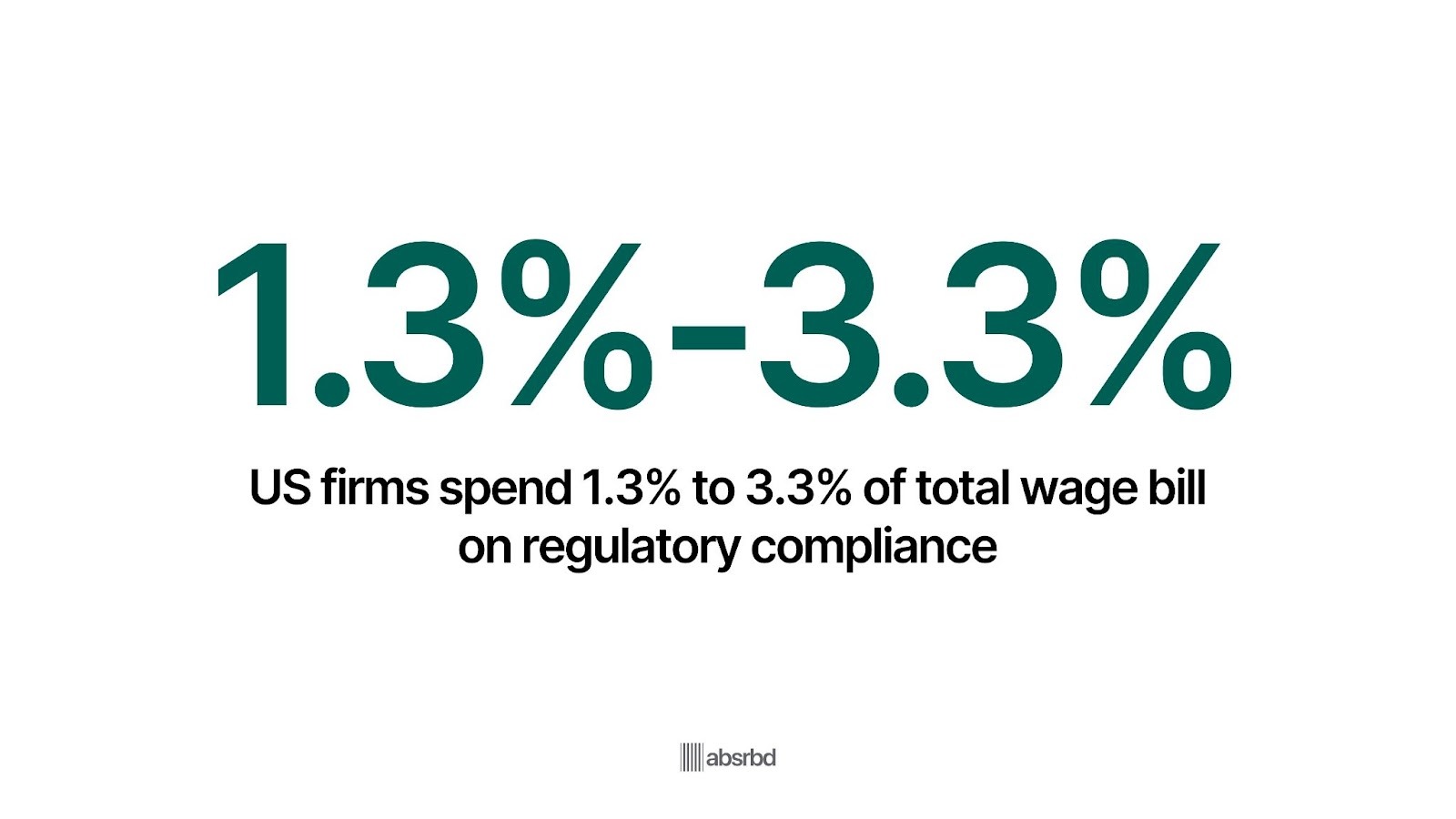
The online trading industry is under heightened scrutiny from regulators worldwide.
For instance, The average US firm spends 1.3 and 3.3 percent of its total wage bill on regulatory compliance. NBER
The UK's Financial Conduct Authority FCA has introduced new consumer duty rules that require firms to prioritize client interests, increasing compliance costs.
As regulations change, trading platforms need to allocate resources to compliance infrastructure, potentially taking away from innovation and customer service efforts.
75% of Security Professionals Have Observed an Increase in Cyberattacks Over the Past Year Cobalt
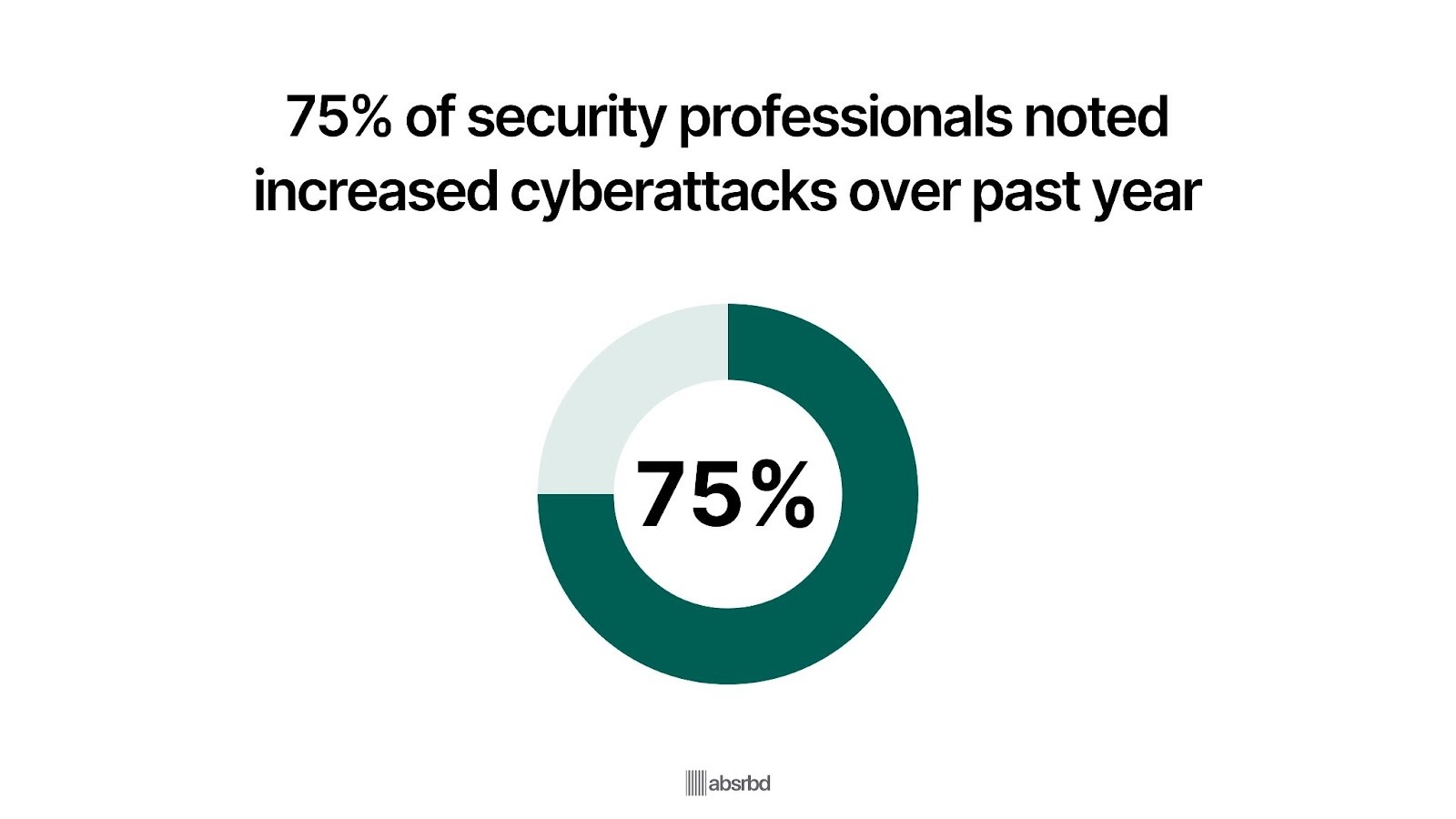
Online trading platforms are prime targets for cyberattacks, which can compromise user data and financial assets.
The rise in online fraud and hacking incidents necessitates robust security measures, adding to operational costs.
A survey found that organizations report a 60% increase in the cybersecurity budget, highlighting the urgency for improved cybersecurity protocols. Carrier Management
Bullish Sentiment Among Traders Decreased From 53% in Q1 to 46% in Q2 2024 Schwab
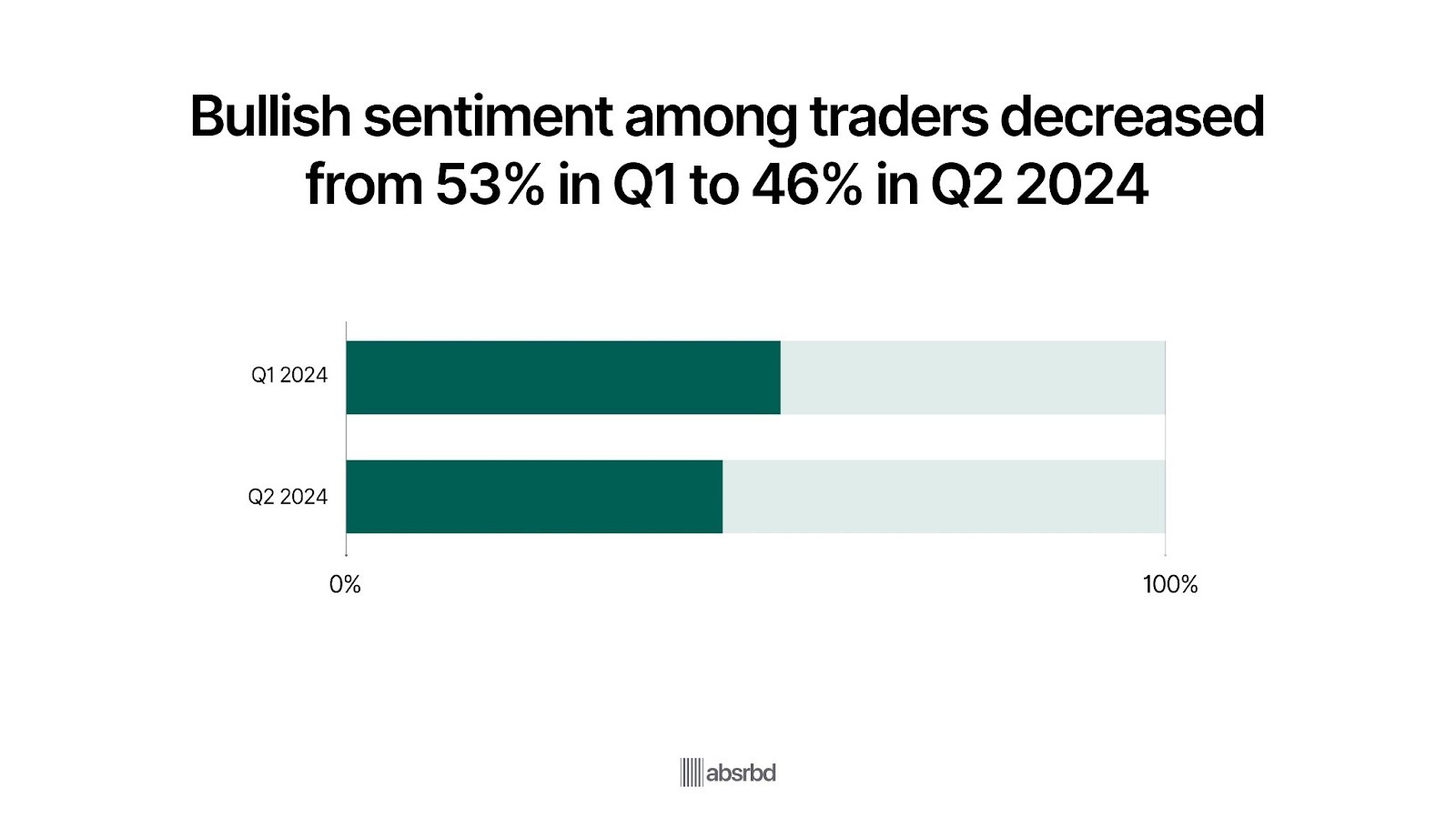
Increased market volatility poses a major challenge for online trading platforms.
Following phenomenal returns, investors are bracing for a more turbulent market environment.
As Andrew Ralich, CEO of oneZero, stated, "The days of easy money are behind us," indicating a shift in market dynamics that could affect profitability
In Q2 2024, 19% of online traders expressed concerns about market volatility, indicating a huge increase from 9% in the previous quarter. Schwab
This rising concern reflects broader anxieties regarding economic conditions and potential market corrections as traders navigate the complexities of the current financial sector.
Experts predict that heightened volatility in 2026 will necessitate better risk management tools and diversified asset offerings.
Emerging Opportunities in the Online Trading Industry
As technology and regulation mature, new opportunities are emerging in AI-driven trading, cross-border market access, ESG investing, and digital asset integration, redefining the next phase of online trading innovation.
AI Integration in Online Trading Platforms with a Projected CAGR of 15.92% PR Newswire

The global artificial intelligence market, which influences online trading platforms, is projected to grow from $285.9 billion in 2023 to $1.5 trillion by 2031 at a CAGR of 15.92% during the forecast period 2024-2031.

This indicates a robust demand for AI technologies that enhance trading efficiency, risk management, and customer service through automation and predictive analytics.
For example, platforms like Charlie Moon's AI Trade Finder utilize AI to analyze thousands of stocks and technical indicators, providing traders with daily trade ideas and recommendations.
Thus, they streamline their trading efforts and increase profitability.
Regulatory Technology RegTech Solutions Gaining Traction
As regulations in the financial sector change, platforms that offer RegTech solutions are becoming increasingly important.
This shift is remarkable as it addresses the growing complexity of regulatory requirements.
For example, ComplyAdvantage provides AI-driven solutions that help financial institutions manage compliance risks and streamline their regulatory processes, ensuring adherence to regulations.
The demand for such solutions is expected to rise, driven by the need for enhanced transparency and accountability in trading practices.
Emergence of Multi-Asset Trading Platforms to Meet Diverse Investor Needs
The demand for multi-asset trading platforms that provide access to various asset classes is increasing.
This new development allows investors to diversify their portfolios and manage risk more effectively.
For instance, Interactive Brokers offers a multi-asset trading platform that allows users to trade stocks, options, futures, and cryptocurrencies all in one place, catering to the diverse needs of modern investors.
The e-brokerage market is expected to generate a revenue of $10.1 billion in the current year Fortune Business Insight, highlighting the financial potential of catering to diverse trading needs.

Mobile Trading Adoption Surging with Increased Retail Investor Participation
The online trading platform sector is experiencing swift changes, propelled by the growing popularity of mobile-based trading tools.
This shift reflects users' increasing preference for on-the-go investment management and real-time market access through smartphones and tablets.
This shift is particularly notable as it caters to a younger demographic of retail investors who prefer trading through mobile devices.
With the rise of mobile trading apps, the number of retail investors engaging in online trading has surged, contributing to the industry's overall growth.
Reports indicate that the e-brokerage market is projected to register a CAGR greater than 6.5% from 2024 to 2029 Mordor Intelligence, reflecting the growing interest in mobile trading platforms.

Platforms like Robinhood have capitalized on this by offering user-friendly mobile apps that allow users to trade stocks and ETFs easily, contributing to their rapid growth in user base.
Sustainable Investing and ESG Integration on the Rise
With a growing focus on environmental, social, and governance ESG criteria, online trading platforms incorporating sustainable investment options are poised for growth.
A recent survey indicated that 85% of investors are interested in sustainable investing, reflecting a shift in investor preferences. Morgan Stanley
Platforms like Wealthsimple offer ESG-focused investment portfolios, allowing investors to align their financial goals with their values.
This shift in investing practices broadens market reach and boosts user participation by offering socially conscious investment choices.
The move toward ethical financial options attracts new investors and deepens engagement among existing ones, reshaping the industry's approach to client preferences.
Impact of Online Trading on Stakeholders
Online trading has transformed financial markets by offering greater accessibility, lower transaction costs, and real-time market participation, benefiting investors, brokers, and institutions while also introducing challenges like increased volatility and cybersecurity risks.
Impact on Consumers
Increased Accessibility and Convenience
Mobile-based trading services such as Robinhood have made investing more approachable for the average person.
These platforms enable users to buy and sell stocks and ETFs effortlessly through their smartphones, simplifying the process and opening up financial markets to a wider audience.
This convenience has democratized investing, enabling a broader demographic to participate in financial markets.
For instance, Robinhood's user-friendly interface and commission-free trading model have attracted millions of new investors, particularly among younger generations.
Price Transparency and Comparison
The rise of online trading has led to greater price transparency. Consumers can easily compare prices across different platforms, fostering competition and leading to lower transaction costs.
A study showed that introducing online sales has greatly increased consumer surplus, highlighting the benefits consumers gain from the competitive pricing offered by online trading platforms.
Impact on Businesses
Transformation of Business Models
Online trading has compelled businesses to adapt their models to remain competitive.
Many firms are integrating e-commerce strategies to complement traditional trading methods.
For example, companies like ETRADE have enhanced their online offerings with advanced trading tools and educational resources to attract and retain customers.
This change frequently necessitates new skill sets and a shift in operational strategies, affecting workforce training and development.
Increased Competition
The entry of new online trading platforms has intensified competition within the industry.
Established firms must innovate continuously to retain market share, often leading to improved services and lower consumer fees.
The competitive market encourages businesses to adopt advanced technologies like AI and data analytics to enhance trading experiences and operational efficiencies.
Impact on Investors
Broader Investment Opportunities
Online trading platforms have expanded the investment opportunities available to individual investors.
For example, platforms like Interactive Brokers allow users to trade various asset classes, including stocks, options, futures, and cryptocurrencies.
This diversification potential enables investors to manage risk more effectively and tailor their portfolios to their financial goals.
Cost-Effectiveness
The shift to online trading has generally reduced transaction costs for investors.
Many platforms, including Webull, offer commission-free trading, making it more affordable for retail investors to participate in the markets.
This cost-effectiveness is particularly appealing to younger investors and those with smaller capital bases, as it lowers the barrier to entry for investing.
Increased Engagement and Education
Online trading has fostered a more engaged investor base.
Many platforms provide educational resources, tools, and community forums that empower investors to make informed decisions.
For instance, TD Ameritrade offers extensive educational content, webinars, and trading simulations, helping investors build their knowledge and confidence in trading.
Conclusion
The online trading sector faces both challenges and opportunities.
Despite the difficulties posed by regulatory complexities and security concerns, the prospect of technological innovation and enhanced accessibility continues to hold promise.
The rise of mobile trading applications illustrates this duality, enabling a broader demographic of investors to engage in financial markets.
Industry players navigating this market must prioritize user trust and security while embracing advanced technologies like AI and machine learning.
Those who successfully integrate these technologies into their platforms and provide educational resources will likely attract and retain loyal customers.
As we look ahead, the capacity to adjust to shifting consumer preferences and regulatory environments will distinguish the frontrunners from the rest in the changing world of online trading.
Frequency Asked Questions
Can You Make Money Trading Online?
Many individuals profit from trading, similar to other high-risk professions like gambling. However, the success rate could be higher, with estimates suggesting that only about 5% to 20% of day traders consistently profit. Those who succeed often have substantial capital, a disciplined approach, and a deep understanding of market dynamics.
Why is Online Trading So Popular?
Accessibility and Convenience: Online trading platforms offer unparalleled accessibility, allowing anyone with an internet connection to participate in trading activities from anywhere, anytime.
Lower Costs: Online trading has lower transaction costs compared to traditional brokerages, as it eliminates the need for minimum account balances or inactivity fees.
Control and Flexibility: Investors enjoy greater control of online trading. They can monitor their investments and make decisions instantaneously, allowing for quick reactions to market changes.
Sophisticated Tools and Resources: Modern trading platforms are equipped with advanced tools and resources, such as real-time data, comprehensive research reports, and automated trading options previously available only to professional traders.
Diversification: Online trading platforms offer various investment options, from stocks and bonds to commodities, currencies, and cryptocurrencies, allowing traders to diversify their portfolios quickly.
What Do You Mean By Online Trading?
Online trading refers to buying and selling financial products over the Internet through an online trading platform. These include various financial instruments, such as stocks, bonds, commodities, currencies, and cryptocurrencies.




